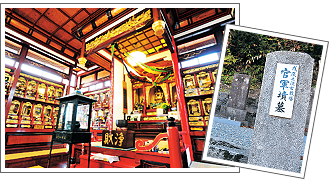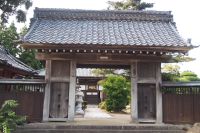 Home
Home- Tourist sites
- History and culture
History and culture in Shonai Town have been carefully safeguarded by our forefathers.
Visitors can get to know the history and culture of the town through historic temples and shrines, historic sites, and the achievements of great figures who helped the community and Japan.

A list of tourist sites
Further narrow down search results.
-
This temple was constructed in 1565. On the temple grounds is a tower to praise the achievements of Kitadatedaigaku, a stela to commemorate a visit by the Emperor Meiji, and the grave of Kitadateda...
-
This is a branch temple of Soon Temple in Tsuruoka that was established in the Bunroku era (1592–1595). At the time of its construction, it was of the Tendai sect of Buddhism, but later converted t...
-
Saburobe Kumagai Underground Tomb
Saburobe, the deity enshrined in Kumagai Shrine, aimed to attain Buddhahood during life, and this tomb was constructed for the underground contemplation that takes place during that attainment proc...
-
Keigaku Taisho established the temple on land where the feudal castle stood belonging to the lord of Amarume, Abo. The temple was constructed in the Nanbokucho period. Handwritten scrolls by Monpon...
-
350 years ago, the traveling monk, Enku went out on a journey and continued to carve statues for people suffering from calamities such as natural disasters and famine. The Enku-butsu are characteri...
-
Meiji Tenno Gochu Ren no Atohi
This monument marks where the Meiji Emperor rested during his 5th visit.
-
Sato Kotoku Chujo Tsuibo no Hi
This monument is for Kotoku Sato, who was from Shonai Town. He took the decisive measure to withdraw during the Battle of Imphal in WWII. The monument is located at Jokei Temple, his family temple.
-
In the severe cold of mid January, this unusual ritual takes place at Chigawara Hachiman Shrine. Boys aged 5–14 pour buckets of cold water over their heads numerous times. Tubs of water are prepare...
-
During the feudal lord procession held on the 15th, shrine parishioners dressed in traditional clothing and carrying a portable shrine parade from Amarume Train Station to Hachiman Shrine while sho...














